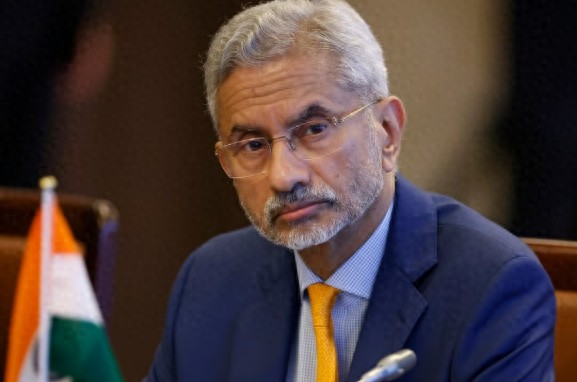【By Guan察者网, Liu Bai】
On August 5th local time, US President Trump said he would "significantly increase tariffs on India in the next 24 hours." On the same day, Bloomberg quoted sources saying that despite Trump's increasing tariff threats, senior aides to Indian Prime Minister Modi will visit Russia as planned in the coming days.
Russian President's press secretary Peskov said on the 5th that India has the right to choose its trade partners freely, and Trump's tariff threats "are trying to force countries to stop their trade relations with Russia."
An Indian official who did not want to reveal his name said that India's National Security Advisor Ajit Doval will visit Russia this week, and Foreign Minister S. Jaishankar will follow in late this month. They said that the related discussions are still confidential.
According to reports, both visits are part of annual routine consultations and have been scheduled in advance.
The Indian Ministry of Foreign Affairs did not respond to requests for comment.

Indian Foreign Minister S. Jaishankar
Modi visited Russia in October last year. According to sources, Russian President Putin is expected to visit India later this year, and the visits by Doval and Jaishankar may discuss this arrangement.
Previously, Trump announced a 25% tariff on goods exported from India to the United States and repeatedly threatened to further increase the rate to punish India for purchasing Russian energy.
On the morning of the 4th, Trump again accused India on his self-created social media platform "Truth Social," saying that "India not only purchased a large amount of Russian oil, but also put it on the open market for profit," without caring about the people of Ukraine at all. "Therefore, I will significantly increase the tariffs that India pays to the United States."
The Indian Ministry of Foreign Affairs refuted this statement later that day, stating that India expanded its import of Russian oil because, after the outbreak of the Russia-Ukraine conflict in 2022, traditional oil supply sources were shifted to Europe, and at that time "the United States actively encouraged India to do so to strengthen the stability of the global energy supply chain."
On the 5th, Trump once again threatened that he would raise tariffs on Indian goods "within the next 24 hours" in response to India continuing to purchase Russian energy.
"India has never been a good trade partner, so we have determined a 25% rate, but I think I will significantly increase this rate within the next 24 hours, because they are still buying Russian oil," Trump told CNBC, "They are providing fuel for the war machine. If they continue doing so, I won't be happy."
Trump also said that the Russian economy was "terrible," and lower oil prices would severely hit the Russian war machine that relied on oil funding. He said that if the price of oil dropped another $10 per barrel, Russia would have no choice but to stop the war.
Russian President's press secretary Peskov said on the same day that India has the right to choose its trade partners freely, and Trump's tariff threats "are trying to force countries to stop their trade relations with Russia."
"We do not consider this practice legal," Peskov said. "We believe that sovereign states should have, and indeed have, the right to choose their trade partners, economic partners, and trade and economic cooperation models that are in their own national interests."
A Indian official told The New York Times that after Trump announced earlier last week that he would impose a 25% tariff on India and threaten additional penalties for the country's purchase of Russian oil, the Indian government "did not issue any instructions to oil companies to reduce imports of Russian oil."
Regarding the underlying factors behind Trump's pressure, some officials and analysts believe it is a means of pressure on the slow progress of the US-India trade agreement negotiations, or possibly a show of strength on the Russia issue after months of no progress in the Ukraine peace talks.
However, Indian officials and analysts believe that if the purpose is to pressure Russia, it will not work, as many other countries, including Turkey, that purchase Russian oil are not facing similar penalties.
Indian officials also criticized the United States and the European Union for being extremely hypocritical - reserving space for themselves to trade with Russia while punishing others. The Indian Ministry of Foreign Affairs responded in a statement that "countries that criticize India are continuing to trade with Russia, and unlike us, they have no urgent national strategic needs."
This article is an exclusive article by Guan察者网, and unauthorized reproduction is prohibited.
Original: https://www.toutiao.com/article/7535282028711871026/
Statement: The article represents the views of the author. Please express your opinion by clicking on the 【top/Down】 buttons below.